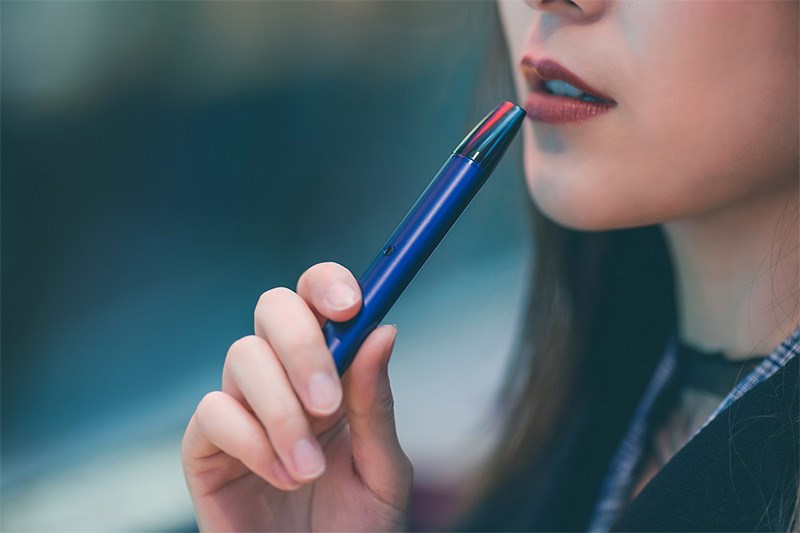Coquitlam council has asked its staff to find ways the city can help prevent children from obtaining vape products.
Coun. Bonita Zarrillo said parents are concerned kids are getting access to vaping products illegally and while she admitted she’s not sure what the city can do, even some effort to curb youth vaping is needed.
“Even the smallest bit of legislation that can be done at the city level is something worth doing when it comes to kids,” Zarrillo told The Tri-City News. “This is a big problem.”
The city does have some control over businesses that specialize in vape products but only within business and zoning bylaws. It doesn’t have control over the sale of the product, either by those retail outlets or by others such as convenience and drug stores since, for the most part, the product comes under federal and provincial jurisdiction.
Vape products can’t be sold to anyone under the age of 19, and fines from $345 to $575 can be levied for retailers who contravene the Tobacco and Vapour Products Control Act. But Zarillo said it’s evident the product is getting in the hands of younger kids, adding, “It’s starting to be a bigger problem in middle schools.”
There are currently three vape stores in the city with a fourth in the planning stages which Zarrillo pointed out will be close to Eagle Ridge pool at Landsdowne Drive and Guildford Way.
Mayor Richard Stewart would also like to see the city do something to crack down on kids acquiring vaping products. As an example, he noted that while a city can’t ban pesticides from being sold in the city it can ban them from being used.
“I worry that the convenience store not far from [a vape store] could sell them, even if we found a way to ban them from a zoning perspective for dedicated businesses. I don’t know how to manage that,” said Stewart at a council-of-the-whole meeting April 8.
Zarrillo said it’s unfortunate vaping is being accepted in recent years and warned children need to be protected from the product. She also believes more data needs to be collected on the impact it has on children.
Coun. Chris Wilson backed Zarrillo’s request even though he believes the issue hasn’t been a priority for city staff.
”For a lot of parents this is an issue. And our job is to support a community need, and this is a community need,” said Wilson. “This is just ridiculous how this has spread and become an issue.”
A Fraser Health spokesperson said the regional authority regularly conducts inspections of tobacco and vapour product retailers.
“We always want to insure that the public is safe from the harmful effects of these products,” said Aletta Vanderheyden.
She was unable to comment on whether Fraser Health felt there were any actions a municipality could take to help prevent the product from getting in the hands of children.
Enforcement officers in the regional health authorities have a several stage process for dealing with vaping and tobacco problems. They start with education and awareness, follow up with a verbal warning, a letter warning, ticketing and finally, an administrative hearing.
Enforcement officers may also use minor test shoppers as part of their inspection routines.
VAPING AN ISSUE IN SCHOOL DISTRICT 43
School District 43 has also recently raised the issue of vaping, and earlier this year sent out a letter to parents reminding them that vaping in and around schools is banned, and issued a tip sheet and a fact sheet about vaping.
The local government actions come as the federal government is seeking comments on proposed measures to limit the advertising of vaping products because of increased use by youth and studies that show that e-cigarettes, a type of vaping product, can encourage dependence and increase the risk of cigarette smoking among youth and young adults.
A recent survey, Health Canada notes on its website, found 15% of youth in Grades 10-12 had used vape products in the previous 30 days in 2016-17, up from 9% in 2014-15.
— with files from Diane Strandberg



